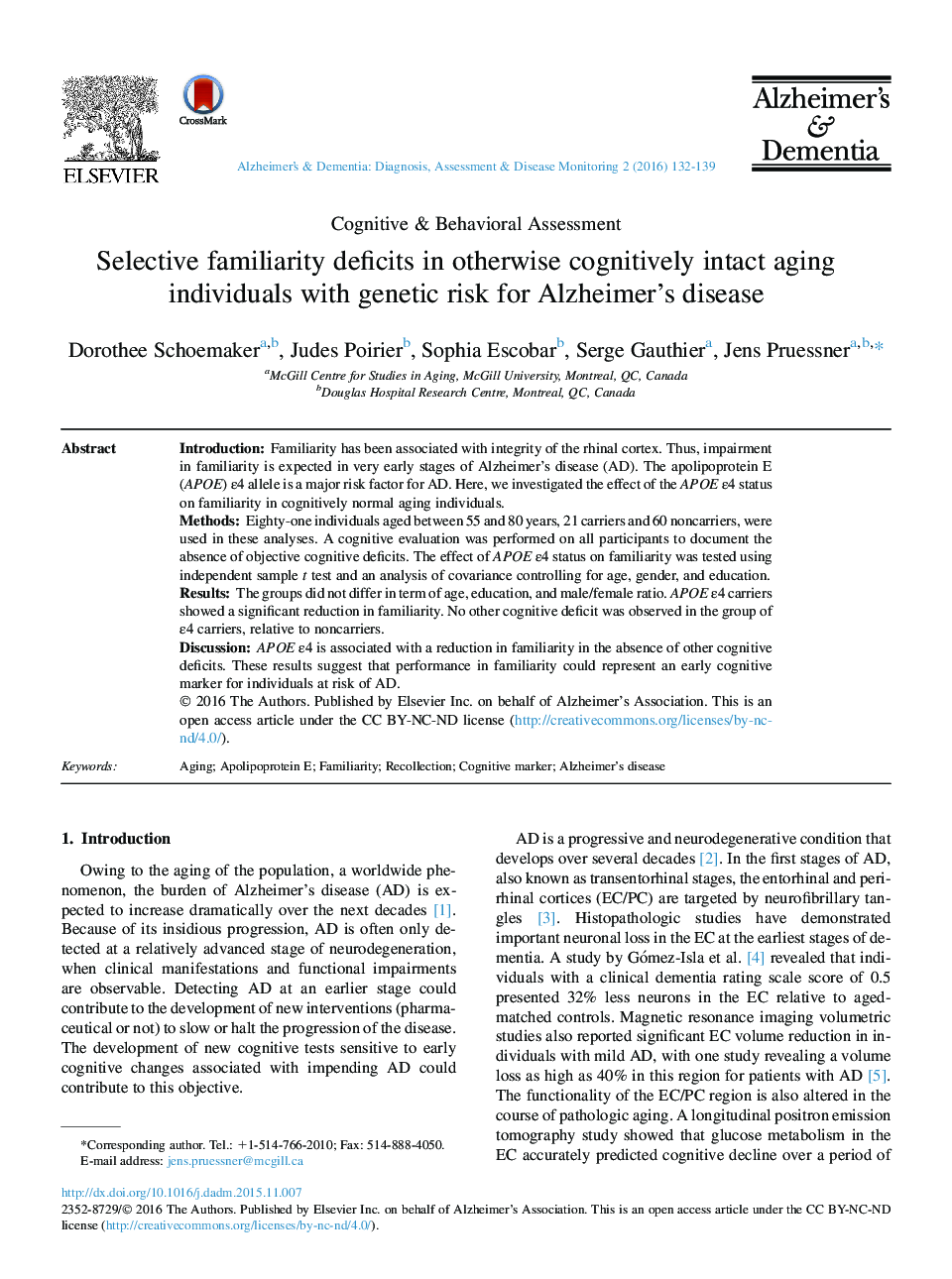| Article ID | Journal | Published Year | Pages | File Type |
|---|---|---|---|---|
| 3032009 | Alzheimer's & Dementia: Diagnosis, Assessment & Disease Monitoring | 2016 | 8 Pages |
IntroductionFamiliarity has been associated with integrity of the rhinal cortex. Thus, impairment in familiarity is expected in very early stages of Alzheimer's disease (AD). The apolipoprotein E (APOE) ε4 allele is a major risk factor for AD. Here, we investigated the effect of the APOE ε4 status on familiarity in cognitively normal aging individuals.MethodsEighty-one individuals aged between 55 and 80 years, 21 carriers and 60 noncarriers, were used in these analyses. A cognitive evaluation was performed on all participants to document the absence of objective cognitive deficits. The effect of APOE ε4 status on familiarity was tested using independent sample t test and an analysis of covariance controlling for age, gender, and education.ResultsThe groups did not differ in term of age, education, and male/female ratio. APOE ε4 carriers showed a significant reduction in familiarity. No other cognitive deficit was observed in the group of ε4 carriers, relative to noncarriers.DiscussionAPOE ε4 is associated with a reduction in familiarity in the absence of other cognitive deficits. These results suggest that performance in familiarity could represent an early cognitive marker for individuals at risk of AD.
